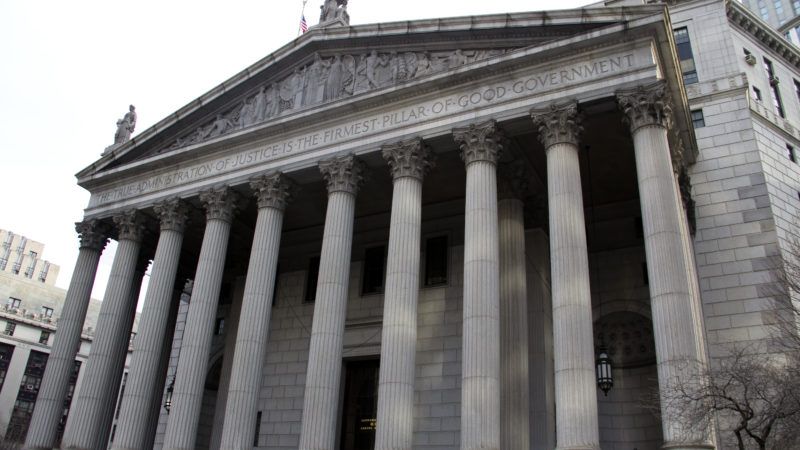New York Police Are Jailing Protesters For Days Without Charging Them
A New York State Judge has ruled that the twin crises of civic unrest and coronavirus justify holding people without charge beyond the normal 24-hour limit.

New York State Judge James Burke has responded to a writ of habeas corpus filed by the Legal Aid Society (LAS) by ruling that the New York Police Department (NYPD) can keep anyone detained for more than 24 hours.
Since the mass protests against police abuses began last week, the NYPD has arrested thousands of New Yorkers and kept up to 400 in Central Booking for more than 24 hours before seeing a judge, according to LAS Deputy Communications Director Redmond Haskins. Many detainees allege that they were prevented from calling family or lawyers and denied water and medical assistance.
The arrests were not limited to alleged looters or even to peaceful protesters out past curfew. The NYPD arrested the Canadian journalist Anna Slatz on June 2 and held her for two days, even though reporters are theoretically among the workers exempted from the city's curfew. Other essential employees, such as delivery drivers, also number among the arrested.
Burke issued his ruling on Thursday, and the LAS filed an appeal on Friday. As of today, according to Haskins, about 10 people in each borough jail were still being held beyond the 24-hour-time limit, down from a peak of around 400 on June 3.
New York City's requirement that someone either be charged or released within 24 hours after being arrested was secured by the New York Court of Appeals' decision in Roundtree v. Brown, a 1991 case brought by the Legal Aid Society.
Burke justified the suspension of this 24-hour limit on the grounds that the city is in a "crisis within a crisis." He claimed that police procedures are under dual stress from citywide civil unrest and the coronavirus pandemic, which has necessitated virtual arraignment meetings in the place of live ones.
The LAS disagreed, stating in a press release that the ruling violates "our fundamental standards of justice."
Legal disputes aside, the NYPD's crackdown could pose a serious public health concern. One detainee told the New York Daily News that he and other detainees could "barely fit" in their holding cell, while other reports allege that NYPD officers confiscated personal protective equipment and refused to provide hand sanitizer. The inability to exercise preventative measures in these tight and needlessly prolonged conditions surely poses a far greater COVID-19 risk than exposure at outdoor marches.
The suspension of these detainment restrictions could also have a chilling effect on free speech. Protesters may avoid assembling for fear of unjust detainment and all the police mistreatment it entails. Likewise, Burke's decision to uphold the new NYPD policy may further embolden cops to act with impunity.


Show Comments (42)